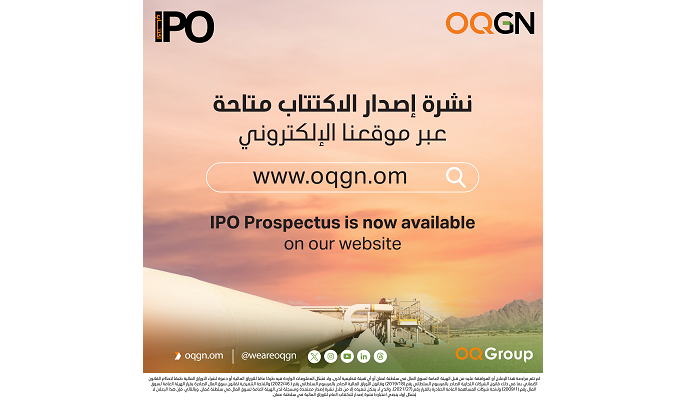
The offering, which will include a portion of OQ's shares being made available to investors, is anticipated to be one of the largest in Oman’s history. Although specific details about the percentage of shares to be floated and the target valuation are yet to be disclosed, industry insiders predict the IPO could generate substantial interest, particularly from regional and global investors looking to tap into Oman’s robust energy sector.
This IPO is seen as part of Oman’s Vision 2040, a strategic plan aimed at reducing the country’s reliance on oil revenues by fostering growth in other sectors. While the country remains heavily dependent on oil and gas, there has been a clear push towards diversification, with the government encouraging greater private sector participation in the economy. OQ’s decision to go public aligns with these broader economic goals, positioning the company as a critical player in the transformation of Oman’s energy market.
As part of its offering, OQ will aim to showcase its expansive portfolio, which includes upstream oil exploration and production activities. The company’s assets, spanning across several strategic locations, are expected to attract substantial attention from investors who view Oman as a stable and lucrative market. The firm's operational efficiency and its commitment to sustainability and innovation have also been emphasized as core aspects of its appeal to potential shareholders.
OQ's exploration and production arm has been at the forefront of Oman’s energy landscape, playing a pivotal role in bolstering the nation’s oil and gas output. With global demand for hydrocarbons still significant, despite increasing shifts toward renewable energy sources, OQ’s upstream operations remain a cornerstone of Oman’s economic engine. However, in tandem with the IPO announcement, OQ has also indicated plans to increase its focus on sustainable energy solutions, including investments in green technologies and carbon capture initiatives.
Oman has been ramping up efforts to attract foreign direct investment (FDI) into its energy sector. The IPO represents a pivotal opportunity for the country to signal its openness to international capital and showcase the strength of its regulatory framework. Market analysts have suggested that OQ’s decision to list domestically, rather than opting for a dual listing, reflects a confidence in the local exchange's ability to support a large-scale offering while enhancing liquidity and investor participation.
The timing of the IPO is seen as strategic, given the positive outlook for the global oil market, which has seen fluctuations but remains on a general upward trajectory. With oil prices maintaining relatively strong levels, OQ’s valuation could benefit from favorable market conditions, providing a solid foundation for its public debut. Furthermore, Oman’s stable political environment, combined with ongoing economic reforms, has made the country an attractive destination for foreign investors seeking long-term opportunities in the energy sector.
OQ’s decision to pursue an IPO follows a trend among Gulf Cooperation Council (GCC) nations, where state-owned enterprises are increasingly looking to public markets to raise capital. This trend was notably spearheaded by Saudi Arabia’s Aramco, which conducted its own landmark IPO in 2019. OQ’s listing is expected to contribute to the growing momentum of public offerings in the region, reinforcing the Muscat Stock Exchange's role as a key platform for capital raising within the Gulf.
Oman’s government has been gradually implementing reforms aimed at strengthening the local financial market, enhancing transparency, and encouraging private-sector involvement. The listing of OQ is aligned with these reforms and is expected to further modernize the Muscat Stock Exchange by increasing its market capitalization and boosting overall trading activity. The IPO will also allow Oman to leverage its energy assets more efficiently, providing the government with additional funds that can be channeled into other sectors, such as infrastructure, education, and healthcare.
The offering comes amid a global push for energy companies to become more transparent and accountable to investors, particularly regarding environmental, social, and governance (ESG) standards. OQ has acknowledged these concerns and has outlined its commitment to sustainable development, highlighting its efforts to balance oil and gas production with environmental stewardship. This commitment is likely to resonate with institutional investors who prioritize ESG metrics in their portfolios.
Investors will be keen to assess OQ’s financial performance ahead of the IPO, particularly in light of fluctuations in global oil prices and the broader economic climate. Analysts expect the company to publish its prospectus in the coming weeks, providing potential investors with detailed insights into its operations, financial health, and future growth prospects. The prospectus is also expected to outline OQ’s strategy for managing potential risks, including price volatility, regulatory changes, and shifting market dynamics as the world transitions toward cleaner energy sources.
Topics
Gcc
